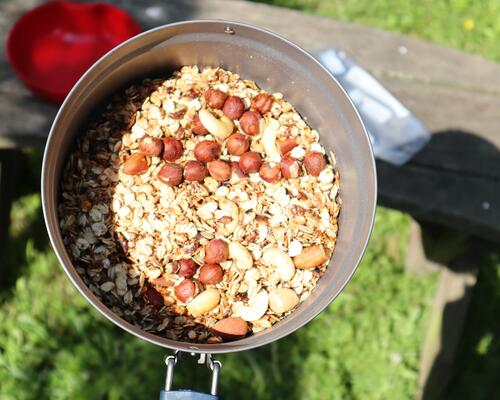Why consume vegetal protein?
Reason no. 1 - They are rich in nutritive elements
Plants represent a plentiful source of vitamins, minerals, trace elements and fibre. These substances are not found in meat. By consuming more plants, not only do you obtain your daily ration of protein, but you also get your fill of the nutritive elements that are central to making your cells (muscle cells in particular) function properly!
Reason no. 2 - They contain "good" fat
The problem with red meat is that it contains proteins but not only proteins. It is also very rich in saturated fat, which can lead to an increase in LDL cholesterol ("bad" cholesterol). This excess cholesterol leads to cardiovascular problems. The same issue also occurs in animal dairy products (cows in particular).
On the contrary, plants are rich in unsaturated fat. This is "good" fat that is needed to maintain our cells in good condition. They should not be forgotten!
Reason no. 3 - In order to save our planet and our friends, the animals
The production of vegetal protein needs fewer resources (less land and less water) than animal protein. What's more, growing crops emits less greenhouse gas and waste than animal breeding.
Then, for those who are sensitive to the protection of animals, consuming less meat and more plants will help to protect our friends, the animals.
Reason no. 4 - They help to maintain our pH balance
Animal protein has an acidifying effect on the body. And a body that is too acidic is more likely to develop certain illnesses.
As for vegetal proteins, they are rich in fibre. They keep our microbiota healthy and maintain a balanced pH.
By mixing sources of animal and vegetal proteins, you can reduce the acidifying effect on your body.
Reason no. 5 - Plants contain fewer calories
Did you know?
For an equivalent quantity of calories, meat contains more fat and less protein than cooked broccoli!
100kcal of meat = 0.8g of protein + 7.4g of fat (LDL)
100kcal de broccoli = 11.1g of protein + 0.4g of fat (HDL)
A good reason for starting to vary your sources of protein, don't you agree?








